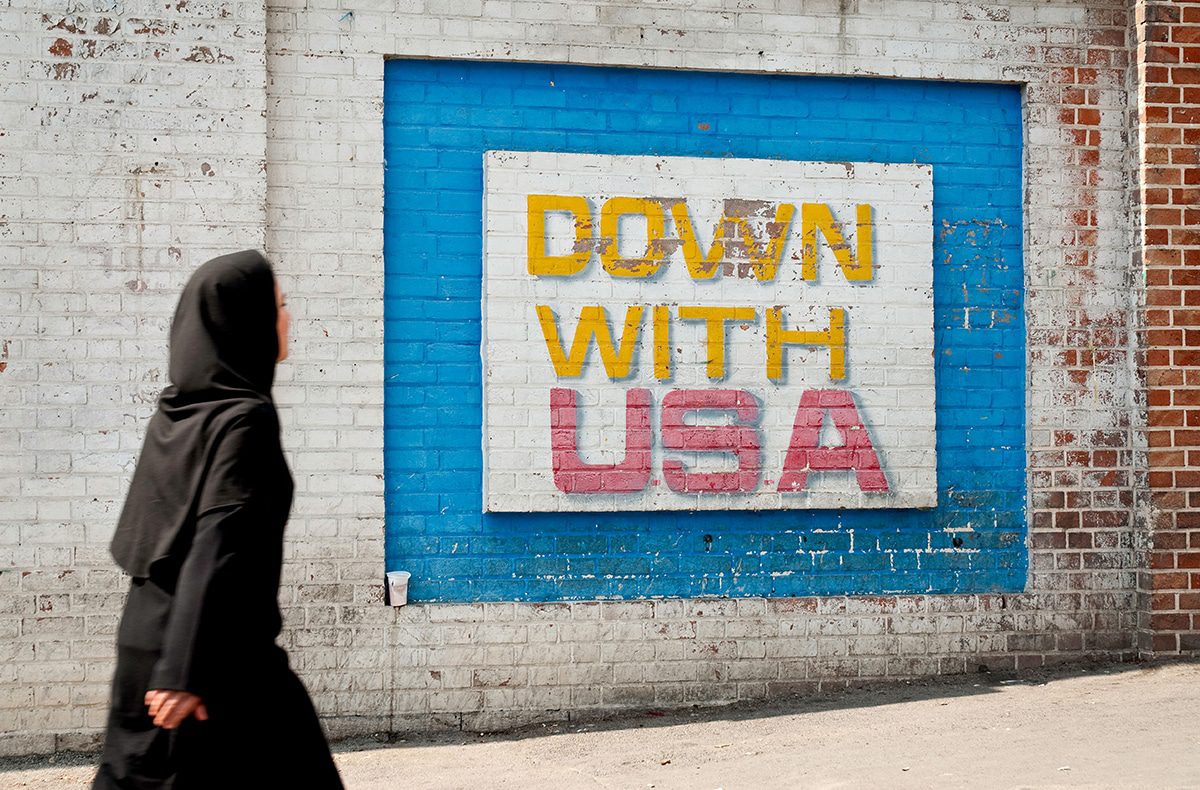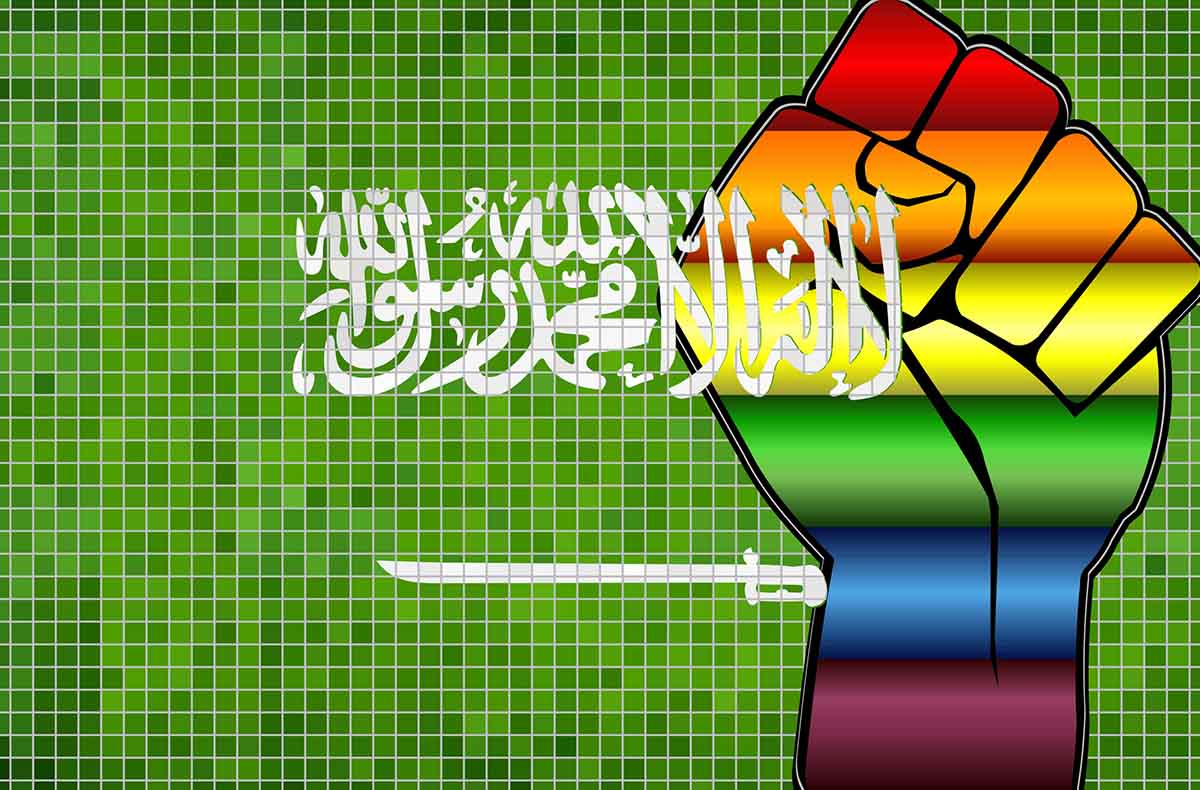
Iranian women took to the streets on July 12 to protest against the compulsory hijab law. The demonstrations, designed to coincide with Iran’s “Hijab and Chastity Day,” saw many women brave the country’s draconian laws against removing their headwear in public. Women can face a lifetime in prison and hundreds of lashes for defying the hijab in Iran.
The Iranian women’s protests have overlapped with the demonstrations for abortion rights in the US after the Supreme Court last month repealed Roe v. Wade, hitherto guaranteeing abortion access across the country. Half of the US is expected to ban abortion as a result of the ruling, which explicitly denies women the right over their own bodies.
Women in both Iran and the US—despite the contrasting realities of the two countries and their respective loud self-proclamations of being the absolute antithesis of one another—are being denied their freedoms through millennia-old dogma. Just as Iran’s imposition of hijab is rooted in the Islamic scriptures mandating sexist modesty codes for women, much of the anti-abortion hysteria in the U.S. is rooted in Christian beliefs. And for an Islamist theocratic state, and a secular country that self-identifies as the leader of the free world, to similarly deny women’s freedom, underscores the potency of religion to devour its foremost victims.
Not only is misogyny inseparable from religion, it has been used by the latter to control populations since the paleolithic advent of supernatural beliefs. This has been done by limiting the woman’s role, and her body’s function, to that of a child-bearer for a sanctioned male partner. While the Islamic obsession with covering up a man’s tilth, and Christian eulogies for fetuses, continue the Abrahamic tradition of shackling female freedoms, even the Vedic religions are marred by grotesque sexism. From Buddhist women striving to become monks to Hindu women fighting for access to their own worship sites, the struggle to overturn misogyny in religious spheres is rooted in the intrinsic sexism of those very ideas on which these spaces are founded.
Even so where Vedic religions have overturned some of their goriest manifestations of misogyny—such as sati, or widow burning—and possess theological flexibility to undo past customs, the monolithic nature of Abrahamic theologies has often meant progress being held hostage to any presence of religion in policymaking. France, for instance, has taken a divergent course on abortion laws from the U.S. through its principles of laïcité, sidelining the Catholic beliefs on abortion through the loi veil and is now working towards enshrining abortion rights in the constitution.
Similarly, it is no coincidence that Muslim-majority countries that have actively shunned Islamic sharia—for instance the former Soviet states—have better safeguards in place for women’s freedoms. Some have even banned sexist Islamist modesty codes, which are bizarrely celebrated by the cultural-relativist progressives in the West. For, any codification of Islamic sharia means subjugation of women, from the democratic Pakistan, to the theocratic Saudi Arabia, to an Afghanistan under jihadist rule. Even in the officially secular Indonesia women can be flogged for extramarital sex in the Aceh province, because the state of Indonesia allows Aceh to govern itself in accordance with Islamic sharia.
SCOTUS has seemingly given a similar rationale for overturning Roe v. Wade: that it is the states that should determine whether or not women should have the right and legal access to abortion. Not only is placing human rights at the altar of popular opinion the very definition of majoritarianism, and not democracy, its logical, albeit paradoxical, extrapolation would mean overturning democracy itself should a sufficient number of the people wish so. Democracy necessitates equality of participation, stake, and independence for the entirety of the population, which is denied the moment an entire group’s individual bodily choices are affixed with collectivist stake.
Religion negates democratic equality not merely by virtue of the natural elevation of its adherents above others, but by the relegation of women, in addition indeed to the shunning of the LGBT communities. But, of course, religious communities inevitably rely on a significant percentage of religious women to uphold that religious inertia. This creates the grand illusion of choice that SCOTUS has thrown fundamental women’s rights under.
Nowhere is this farce of choice better illustrated than the celebration of Islamic sexism, where a handful of women exercising an ostensibly informed choice to succumb to millennia old dogma, are cited to glorify gender segregation and rape apologia in the Muslim world, whether explicitly codified or upheld through societal torpor. The Saudi and Iran led rapid Islamization of the Sunni and Shia halves has meant that a fast-escalating number of Muslims have been instinctively making Islamist choices over the past four decades.
Indeed, defending the right to choose should absolutely mean allowance for individual religionist choices, whether it’s a Catholic woman refusing to abort her baby owing solely to her beliefs or a Muslim woman donning Islamic gear deeming it synonymous with modesty. But the liberal and progressive allowance for such choices needs to be complemented with active challenge to religion as an institution that is outmoded, even perilous for the progress of humankind. After all, sati too was a “choice” wholeheartedly defended by Hindu women, and many South Asian women embrace violent verdicts by elder men of local jirgas and panchayats even today.
A straightforward reading of canonical texts with modern-day insights and sensibilities should suffice in extricating the obvious conclusion on the compatibility of religious scriptures with contemporary times, let alone with active progress. What we instead see is far too many who might’ve otherwise purged themselves of antediluvian dogma treating religion as a harmless vocation that a significant chunk of humankind happens to indulge in. This results in bizarre deliberations over what the Bible actually says about abortion, or whether the Quran actually forces women to wear the hijab, instead of actively making it irrelevant what these ancient texts do or do not say about fundamental rights and absolute equality of humankind.
Instead of making religion irrelevant in such policymaking, we instead see progressive defense of religious infiltration in public domains—even in secular western countries—where no amount of affection for a political ideology, or a sports team, for instance, would allow breaches of codes that religious affiliation seamlessly manages to pull off. And there’s nothing that religion breaches more impulsively, frequently, and comprehensively, than women’s rights, whether in religionist states or those secular liberal democracies that remain oblivious to how organized religion is antithetical to secularism, liberalism, and democracy itself.



